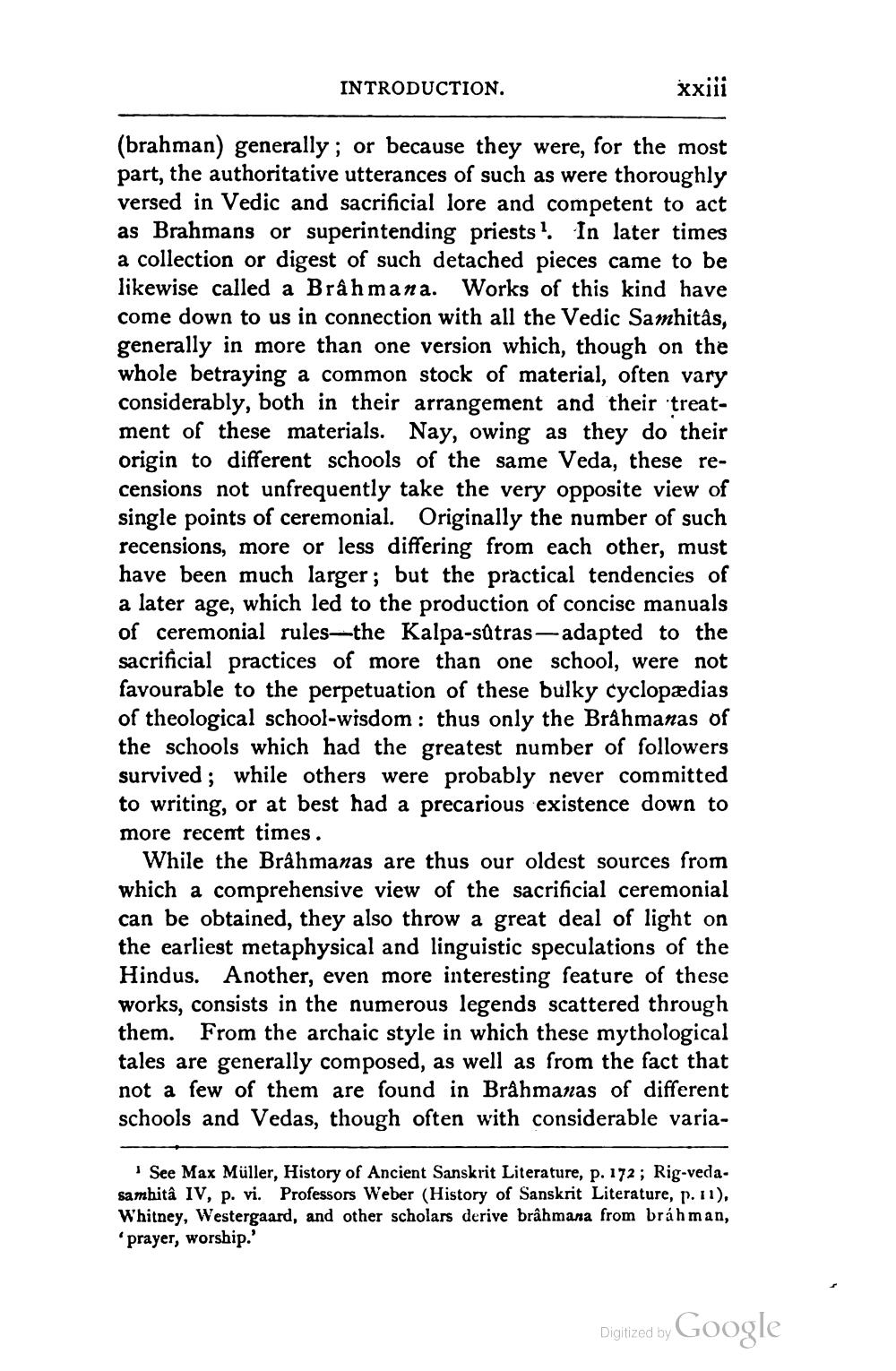________________
INTRODUCTION.
xxiii
(brahman) generally; or because they were, for the most part, the authoritative utterances of such as were thoroughly versed in Vedic and sacrificial lore and competent to act as Brahmans or superintending priests? In later times a collection or digest of such detached pieces came to be likewise called a Brahmana. Works of this kind have come down to us in connection with all the Vedic Samhitas, generally in more than one version which, though on the whole betraying a common stock of material, often vary considerably, both in their arrangement and their treatment of these materials. Nay, owing as they do their origin to different schools of the same Veda, these recensions not unfrequently take the very opposite view of single points of ceremonial. Originally the number of such recensions, more or less differing from each other, must have been much larger ; but the practical tendencies of a later age, which led to the production of concise manuals of ceremonial rules-the Kalpa-stras-adapted to the sacrificial practices of more than one school, were not favourable to the perpetuation of these bulky cyclopædias of theological school-wisdom : thus only the Brahmanas of the schools which had the greatest number of followers survived; while others were probably never committed to writing, or at best had a precarious existence down to more recent times.
While the Brahmanas are thus our oldest sources from which a comprehensive view of the sacrificial ceremonial can be obtained, they also throw a great deal of light on the earliest metaphysical and linguistic speculations of the Hindus. Another, even more interesting feature of these works, consists in the numerous legends scattered through them. From the archaic style in which these mythological tales are generally composed, as well as from the fact that not a few of them are found in Brâhmanas of different schools and Vedas, though often with considerable varia
See Max Müller, History of Ancient Sanskrit Literature, p. 172; Rig-veda. sambitâ IV, p. vi. Professors Weber (History of Sanskrit Literature, p. 11), Whitney, Westergaard, and other scholars derive brâhmana from brahman, prayer, worship.'
Digitized by Google




